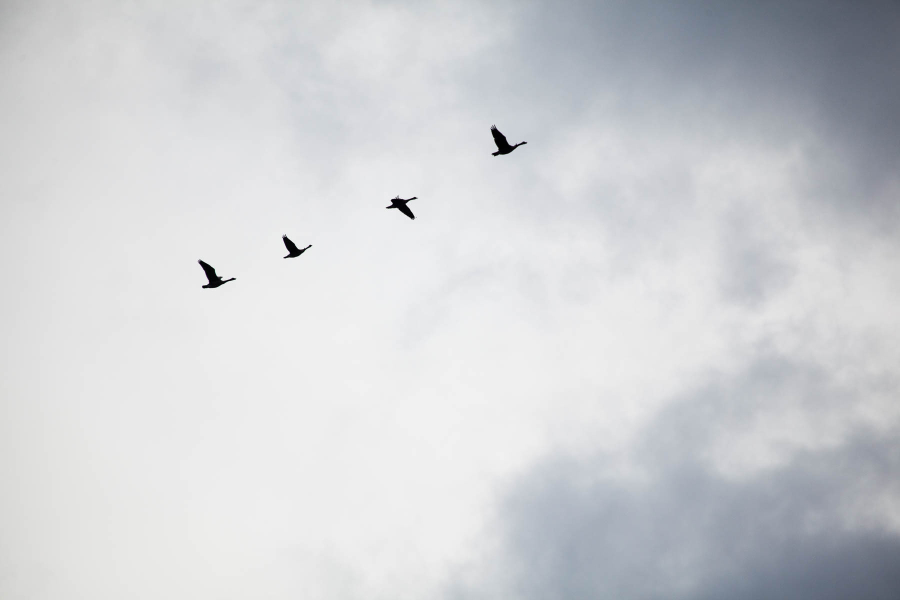Resident geese may ruffle locals' feathers
Non-migratory Canada geese bring year-round impacts to Bay region

Canada geese fly along the Mattaponi River in Walkerton, Virginia. The characteristic honking and “V”-shaped flying pattern of Canada geese are distinctive sounds and sights of autumn in the Chesapeake region.
As part of the Atlantic Flyway—one of the major bird migration routes in the United States—the Chesapeake Bay is an important stopover for migrating geese. But these migratory birds are not the only type of Canada geese found in the area. While many flocks leave the area in early spring to return to their northern breeding grounds, countless others remain year-round. “Resident” geese, as they’re known, may appear nearly identical to their migratory relatives, but they actually make up a distinct population.
Most resident geese originated from flocks that were brought to the Chesapeake region in the early 1900s, through government stocking programs and for use as live decoys. These non-migratory geese are typically larger, begin breeding at a younger age and produce more eggs than their migratory counterparts. And because they tend to live in urban and suburban areas—like lawns, parks and golf courses—resident geese are less likely to be exposed to hunting, meaning they live longer as well.
In the Bay region and beyond, populations of resident Canada geese have grown exponentially since the mid-20th century, bringing with them a variety of environmental problems: from threatening the health of waterways and humans with their droppings to overgrazing on aquatic vegetation that might otherwise sustain migratory birds on their long journeys. Both resident and migratory Canada geese are protected under the Migratory Bird Treaty Act, but experts have worked to identify ways to reduce the damage caused by resident geese. The National Park Service, for example, sought public comments last year on its plan to use border collies to chase away Canada geese on the National Mall.
Learn more about Canada geese and the environmental effects of resident geese.

Comments
Nobody ever mentions the fact that resident and migratory geese do tens of thousands of dollars to agricultural crops. There are more geese now that in my 50 yrs and the game dept is cutting back to only a one bird limited.wow. John
Thank you!
Your comment has been received. Before it can be published, the comment will be reviewed by our team to ensure it adheres with our rules of engagement.
Back to recent stories